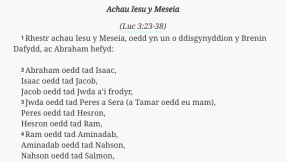
The popular movie franchise "Star Wars" has legions of fans around the world, but in Turkey, religious authorities are warning against the supposed spread of a religion based on these films, especially among Christians.
Turkey's Directorate of Religious Affairs, or Diyanet—the country's top religious body—recently launched a campaign against the so-called "Jedi religion," saying this belief system based on "Star Wars" films run contrary to Islamic teachings.
"Jediism ... is spreading today in Christian societies. Around 70,000 people in Australia and 390,000 people in England currently define themselves as Jedis," Marmara University Assistant Professor Bilal Yorulmaz wrote in the latest edition of the Diyanet's monthly magazine.
In the Czech Republic, more than 15,000 Czechs indicated the Jedi Knight as their religion in a 2011 national survey.
The Turkish religious scholar also criticised Turkish theatre and cinema producers for supposedly presenting religious people as bad characters and in an "ill-minded" way.
Yorulmaz also slammed Turkish entertainment producers for supposedly giving Islamic-themed names to unintelligent characters.
The Turkish religious authorities' crackdown on the Jedi religion came four months after thousands of students from a university in Turkey launched an online petition demanding that a Jedi temple be built on their campus.
However, Turkish Islamic theologist Abdülaziz Bayındır was more open minded about the new "religion," saying it is "natural to have such movies as long as they don't encourage violence."
According to its website, the Temple of the Jedi Order describes its members as "real people that live or lived their lives according to the principles of Jediism, the real Jedi religion or philosophy." The Jedi church also claims that its members are "not Star Wars role players."
The Jedi church notes on its website that it has no official doctrine of scripture.
"The Jedi church recognizes that all living things share a living force and that all people have an innate knowledge of what is right and wrong, and the Jedi church celebrates this like no other religion," it says.
Some followers have explained that it's the principles behind the faith that they adhere to.
"No, we don't worship Yoda. And telekinesis is not something that we necessarily do — at least not like in the movies. But I won't deny that the force is very present in our teachings," Iraq War veteran Ally Thompson, a follower of Jediism, explained.
"Some people call it magic. Some call it ashe. The scientific community calls it energy. But it's everywhere. You can find it in the Bible. When Moses parted the Red Sea — how did he do that? With energy. With the force," she added.
The religion was introduced as "The Force" in the 1977 classic "Star Wars: A New Hope."













